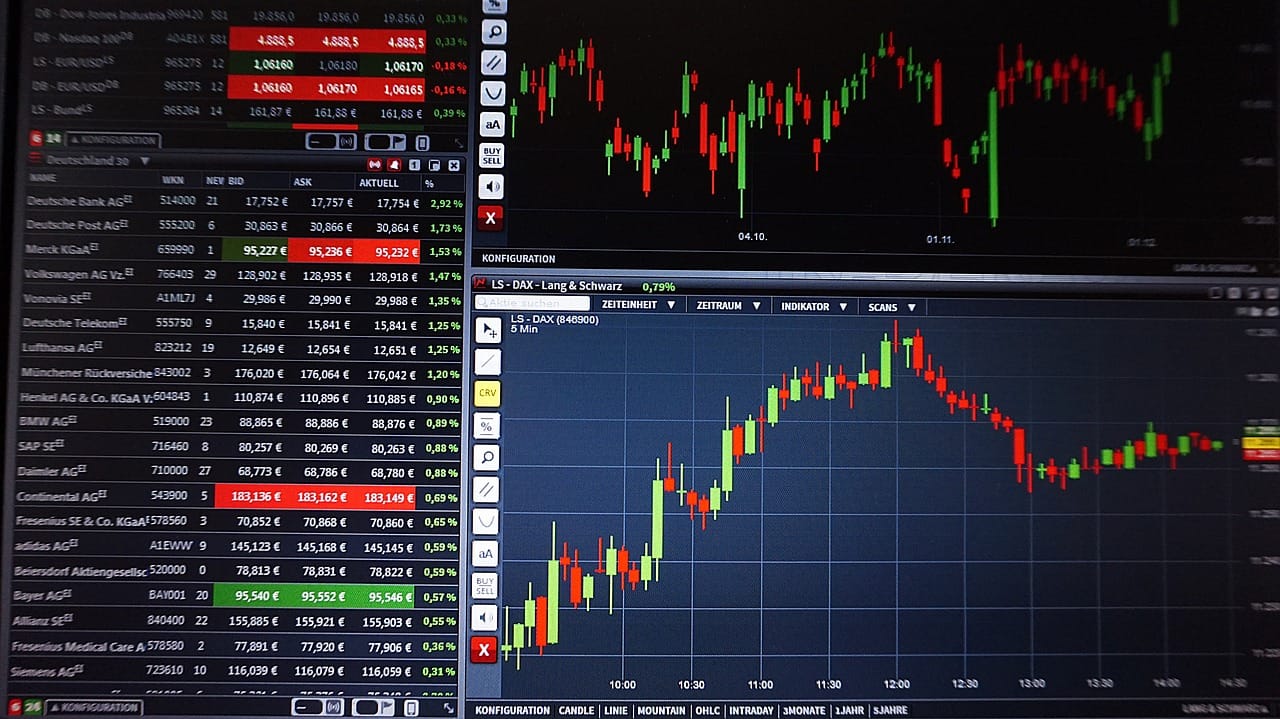Continuing Trade War Between China and the West | Ongoing Tensions with Technology Trade Restrictions and Rare Earth Mineral Export Controls
updated on the ongoing trade war between China and the West, focusing on technology trade restrictions and rare earth mineral export controls

Understanding the Trade War | Background and Implications
The trade war between the United States and China has been a significant topic of discussion in recent years, impacting not only the two countries involved but also the global economy. The origins of the trade war can be traced back to the growing trade deficit between the US and China, which prompted the US to impose tariffs on a wide range of Chinese imports. In response, China retaliated with its own tariffs, leading to a tit-for-tat escalation of trade barriers. The implications of this trade war have been far-reaching, affecting not only the economies of the US and China but also global economic relations.
The trade war has had a profound impact on global economic relations, disrupting established supply chains and trade patterns. Many countries around the world have felt the ripple effects of the trade war, as it has led to increased uncertainty and volatility in the global economy. The imposition of tariffs and trade restrictions has resulted in higher costs for businesses and consumers, leading to a slowdown in global trade and economic growth. Moreover, the trade war has also strained diplomatic relations between the US and China, as both countries have engaged in heated rhetoric and accusations, further complicating efforts to resolve the trade dispute.
The implications of the trade war are not limited to economic aspects alone. The trade war has also had significant geopolitical implications, particularly in the context of US-China relations. The two countries, being the world's largest economies, have been engaged in a struggle for economic and technological dominance. This has led to increased tensions and competition, not only in the economic sphere but also in the realms of technology, military, and influence in various regions of the world. The trade war has thus become a key factor in shaping the geopolitical landscape and power dynamics between China and the West.
Impacts of the Trade War on Global Economic Relations

The trade war has disrupted global economic relations in several ways, impacting both developed and developing economies. One of the primary impacts has been the disruption of global supply chains, as companies have been forced to re-evaluate their sourcing and production strategies in response to the tariffs and trade restrictions imposed by the US and China. This has led to increased costs and logistical challenges for businesses, particularly those that rely heavily on international trade and cross-border operations.
Furthermore, the trade war has also contributed to increased uncertainty and volatility in financial markets, as investors and businesses grapple with the shifting dynamics of global trade. The imposition of tariffs and the threat of further escalation have created a climate of uncertainty, leading to hesitancy in investment and decision-making. This has had a knock-on effect on global economic growth, as businesses and consumers alike have become more cautious in their spending and expansion plans.
Moreover, the trade war has also had implications for international trade agreements and multilateral organizations. The escalating tensions between the US and China have put a strain on the World Trade Organization (WTO) and other international bodies, as efforts to resolve trade disputes and negotiate new agreements have been hampered by the acrimony between the world's two largest economies. This has raised concerns about the effectiveness of the existing global trade framework and the future of multilateral cooperation in addressing trade-related challenges.
Technology Trade Restrictions and Their Effects
A key aspect of the trade war has been the imposition of technology trade restrictions, particularly in the realm of telecommunications and information technology. The US has targeted Chinese technology companies, such as Huawei and ZTE, citing national security concerns and allegations of intellectual property theft. These restrictions have not only affected the business operations of these companies but have also reverberated across the global technology industry, leading to disruptions in supply chains and innovation.
The effects of these technology trade restrictions have been felt globally, as they have forced companies to reassess their reliance on Chinese technology and to seek alternative suppliers and partners. This has led to increased competition and innovation in the technology sector, as companies strive to develop indigenous capabilities and reduce their dependence on foreign technology. However, it has also posed challenges for businesses that have long-standing partnerships and investments in Chinese technology, requiring them to navigate complex regulatory and geopolitical landscapes.
Furthermore, the technology trade restrictions have also raised concerns about the fragmentation of the global technology ecosystem, as countries and companies seek to develop their own standards and systems in response to the escalating trade tensions. This has raised questions about the future of global technological cooperation and innovation, as well as the potential for a bifurcation of the global technology industry into separate spheres of influence.
Rare Earth Minerals and Export Controls
Rare earth minerals have emerged as a focal point of the trade war, as these minerals are essential components in a wide range of high-technology products, including smartphones, electric vehicles, and renewable energy systems. China is the world's largest producer of rare earth minerals, and the trade war has raised concerns about the potential for export controls and disruptions in the global supply of these critical materials.
The imposition of export controls on rare earth minerals by China has prompted fears of supply shortages and price volatility in the global market. This has led to efforts by other countries and companies to diversify their sources of rare earth minerals and to develop alternative technologies that reduce reliance on Chinese supplies. Moreover, the trade war has also sparked discussions about the need for strategic stockpiling and international cooperation to ensure the stability of the rare earth minerals market.
The trade war has thus highlighted the strategic importance of rare earth minerals and the need for long-term planning and investment in securing a stable supply of these critical materials. It has also underscored the interconnectedness of the global economy and the potential for trade disputes to have far-reaching implications for industries and technologies that are essential for the transition to a more sustainable and technologically advanced future.
Geopolitical Tensions and Diplomatic Relations
The trade war has not only had economic and technological implications but has also significantly impacted geopolitical tensions and diplomatic relations between the US and China. The escalating trade dispute has become intertwined with broader geopolitical competition and rivalry, as both countries seek to assert their influence and interests on the global stage.
The trade war has exacerbated existing tensions between the US and China, leading to a more confrontational approach in their diplomatic and strategic interactions. This has led to increased competition in areas such as military presence, influence in regional conflicts, and support for allies and partners. The trade war has thus become a key factor in shaping the geopolitical dynamics of the 21st century, as it has led to a reconfiguration of alliances and power structures in various regions of the world.
Moreover, the trade war has also had implications for the broader global order, as it has raised questions about the future of international cooperation and multilateralism. The US and China's diverging approaches to trade and diplomacy have put a strain on existing international institutions and agreements, leading to concerns about the potential for a more fragmented and conflictual global order. This has prompted other countries to reassess their diplomatic and strategic alignments, as they navigate the changing dynamics of great power competition.
Trade Policies and Market Dynamics

The trade war has prompted a reevaluation of trade policies and market dynamics, as countries seek to navigate the new realities of global trade. The imposition of tariffs and trade restrictions has led to a shift in trade patterns and market dynamics, as businesses and governments adapt to the changing landscape of international commerce.
Countries have sought to develop new trade policies and agreements to mitigate the impact of the trade war and to foster greater economic resilience. This has led to efforts to diversify trade partners and supply chains, as well as to explore new avenues for trade and investment. Moreover, the trade war has also prompted discussions about the need for reforms in existing trade agreements and institutions, as countries seek to address the challenges posed by the current trade environment.
The trade war has also impacted market dynamics, leading to changes in consumer preferences and business strategies. Companies have had to adjust their pricing and product offerings in response to the tariffs and trade barriers, leading to shifts in market share and competitive dynamics. Moreover, the trade war has also prompted discussions about the need for greater transparency and predictability in international trade, as businesses seek to navigate the complexities of the current trade environment.
Tariffs and Economic Impact
One of the most visible aspects of the trade war has been the imposition of tariffs by the US and China on a wide range of products. These tariffs have had significant economic impacts, leading to increased costs for businesses and consumers, as well as disruptions in global trade patterns. The imposition of tariffs has also led to retaliatory measures by other countries, further complicating the global trade environment.
The economic impact of tariffs has been felt across various sectors, as industries have had to contend with higher costs and reduced market access. This has led to job losses and business closures in some cases, particularly in industries that are heavily reliant on international trade. Moreover, the uncertainty surrounding the future of tariffs and trade negotiations has led to hesitancy in investment and expansion plans, further impacting economic growth and stability.
Furthermore, the economic impact of tariffs has also had implications for global poverty and inequality, as the costs of trade barriers are often borne disproportionately by the most vulnerable populations. This has raised concerns about the need for greater social and economic inclusivity in the design and implementation of trade policies, as well as the potential for trade disputes to exacerbate existing disparities and vulnerabilities.
Navigating Global Supply Chains in the Trade War Era
The trade war has prompted businesses to reevaluate their global supply chains and sourcing strategies, as they seek to mitigate the impact of tariffs and trade restrictions. Companies have sought to diversify their supplier base and production locations, as well as to explore alternative modes of transportation and logistics. This has led to increased complexity and costs for businesses, as they seek to navigate the shifting dynamics of global trade.
Moreover, the trade war has also prompted discussions about the need for greater transparency and resilience in global supply chains, as companies seek to ensure the stability and continuity of their operations. This has led to efforts to develop risk management and contingency plans, as well as to foster greater collaboration and information sharing among supply chain partners.
The trade war has also highlighted the importance of technology and innovation in enhancing the resilience of global supply chains. Companies have sought to leverage digital technologies and data analytics to optimize their supply chain operations and to identify potential risks and opportunities. Moreover, the trade war has also prompted discussions about the need for greater investment in infrastructure and logistics, as countries and companies seek to enhance the efficiency and reliability of global supply chains.
Strategies for Businesses in the Midst of Trade Negotiations
Businesses have had to navigate the complexities of the trade war and develop strategies to mitigate its impact on their operations. One key strategy has been to diversify supply chains and sourcing strategies, as companies seek to reduce their dependence on specific countries and regions. This has led to increased focus on developing alternative sourcing options and production capabilities, as well as to explore new markets and partners.
Moreover, businesses have also sought to enhance their risk management and contingency planning, as they seek to navigate the uncertainty and volatility of the current trade environment. This has led to efforts to develop agile and flexible business models, as well as to foster greater collaboration and information sharing with supply chain partners and industry associations.
Furthermore, businesses have also sought to leverage technology and innovation to enhance their competitiveness and resilience in the face of the trade war. This has led to increased investment in digital technologies and data analytics, as well as to the exploration of new business models and revenue streams. Moreover, businesses have also sought to engage in advocacy and dialogue with policymakers and industry stakeholders, as they seek to influence the trajectory of trade negotiations and policies.
Adapting to the Ever-Changing Trade Landscape
The ongoing trade war between the US and China has had far-reaching implications, disrupting global economic relations, technology trade, and diplomatic dynamics. As businesses and countries navigate the complexities of the trade war era, it is imperative to develop adaptive strategies that enhance resilience and competitiveness. Diversifying supply chains, leveraging technology and innovation, and fostering greater collaboration are essential elements in adapting to the ever-changing trade landscape.
While the trade war has posed significant challenges, it has also created opportunities for businesses and countries to rethink their trade policies and market dynamics. By embracing strategic diversification and innovation, businesses can position themselves to thrive in the midst of trade negotiations and economic uncertainties. Moreover, fostering dialogue and cooperation among stakeholders can contribute to the development of more inclusive and sustainable trade frameworks.
As we continue to navigate the ongoing trade war and its implications, it is crucial to remain agile and proactive in developing strategies that foster resilience and growth. By adapting to the ever-changing trade landscape, businesses and countries can position themselves to thrive in the midst of economic and geopolitical challenges, and to contribute to the development of a more stable and inclusive global trade environment




